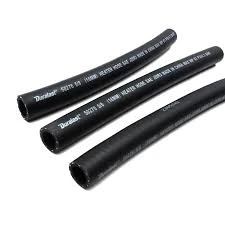Fuel Delivery Systems and Their Importance in Efficient Engine Performance
វិច្ឆិកា . 28, 2024 04:44 Back to list
Fuel Delivery Systems and Their Importance in Efficient Engine Performance
Understanding Fuel Injection Fuel Lines An Essential Component of Modern Engines
In the realm of automotive engineering, fuel delivery systems have undergone significant advancements over the years. One of the critical components that have evolved alongside these systems is the fuel injection fuel line. This article will delve into the intricacies of fuel injection fuel lines, shedding light on their function, design, maintenance, and overall importance in modern fuel injection systems.
The Role of Fuel Injection Fuel Lines
Fuel injection systems have largely replaced carburetors in modern vehicles due to their efficiency, performance, and environmental benefits. A fuel injection system's primary function is to deliver fuel into the combustion chamber of an engine at precise intervals, ensuring optimal combustion and power output. The fuel injection fuel line is the conduit through which fuel travels from the fuel tank to the fuel injectors.
Fuel lines are designed to resist high pressures and varying temperatures, considering that the fuel must travel through these lines at high speeds. They are typically crafted from materials like high-grade rubber or nylon reinforced with a high-strength material, ensuring durability and longevity in the harsh environment of an engine compartment.
Design and Construction
The design of fuel injection fuel lines must accommodate several factors. First, they must support the high pressure produced by fuel pumps, which can exceed 50 psi in many modern vehicles. If these lines cannot withstand such pressures, they run the risk of rupturing, which can lead to catastrophic fuel leaks and vehicle fires.
Second, the robustness of the fuel lines must also consider the effects of heat. Fuel lines often run close to the engine, where temperatures can surge. High-quality insulation and proper routing of fuel lines can mitigate the risks associated with heat exposure.
Additionally, fuel lines must be designed to resist the chemicals present in fuels. Gasoline and diesel fuels can contain various additives that may corrode or degrade low-quality materials, resulting in leaks and system failures. For this reason, manufacturers typically employ fuel lines constructed from specially formulated materials that can withstand these chemical challenges.
fuel injection fuel line

Maintenance and Inspection
Despite their durable construction, fuel injection fuel lines require regular maintenance and inspection to ensure optimal performance and safety. Fuel lines should be checked periodically for signs of wear, such as cracking, bulging, or signs of leakage. Any deteriorating condition can compromise their integrity and lead to severe consequences.
One common maintenance task involves inspecting the connections at both ends of the fuel lines, as these junctures are often susceptible to leaks. Ensuring that clamps and fittings are secure can prevent fuel loss and maintain system pressure.
In some cases, fuel lines may accumulate residue from fuel impurities. It is advisable to use fuel system cleaners periodically to mitigate the risk of injector clogging and to promote a clean and efficient fuel delivery system.
Signs of Trouble
Vehicle owners should be vigilant for signs that may indicate issues with the fuel injection fuel line. A significant reduction in engine performance, unexpected engine stalling, and the smell of fuel can all be signs of problems related to the fuel line. If any of these symptoms occur, it is imperative to have the system inspected by a professional mechanic promptly.
Conclusion
In summary, fuel injection fuel lines play a pivotal role in the operation of modern fuel injection systems. Their ability to effectively transport fuel under high pressure and in challenging conditions is crucial for engine performance and safety. Understanding their function, design, and maintenance needs can help vehicle owners ensure their engines run smoothly and efficiently. As with all vehicle components, prioritizing regular inspections and staying attuned to any signs of trouble is key to preventing major problems and ensuring longevity in the engine's performance. Fuel injection fuel lines may be a small part of the broader automotive system, but their impact is undeniably significant, making them an essential component of today's vehicles.
